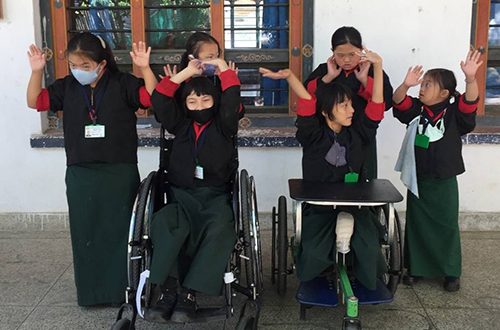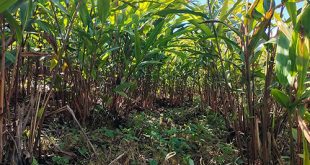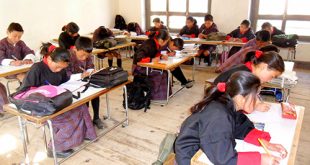Inclusive education is not just a philosophy, it is a fundamental human right. It is rooted in the belief that every child, regardless of ability or background, deserves equal access to quality education in a learning environment that values diversity and promotes belonging.
Globally, inclusive education has gained momentum, guided by the principles of equity, participation, and non-discrimination.
For Bhutan, which upholds Gross National Happiness (GNH) and the well-being of all citizens, inclusive education is central to ensuring that no child is left behind.
At a Media Advocacy Training on Disability Rights held in Paro, a Programme Officer with the Department of School Education under the Ministry of Education and Skills Development (MoESD), Pema Chogyal, gave a compelling presentation on why inclusive education must be a national priority.
“Inclusion means to include everyone,” Pema said, emphasizing that inclusive education is more than just integrating students with disabilities into classrooms, it is about valuing, accepting, and supporting diversity in schools. He said, “Every person has the potential to learn and should be valued. That’s what inclusive education is about.”
He explained that inclusive education nurtures holistic development, supporting not only academic growth but also the emotional, physical, and social well-being of children. “It creates the kind of learning environment where every child feels they belong and can thrive,” he said.
Currently, Bhutan has 50 inclusive schools, including two special schools dedicated to children with more special needs.
However, out of the 6,355 persons with disabilities registered, only 22.8 percent which is 1,455 children are currently enrolled in school. “Still around 77 percent of Children with Disabilities are out of school,” Pema said. “So, I think collectively there’s still a lot to do.”
He highlighted that acceptance remains one of the biggest barriers to inclusive education. Despite policy-level support, Pema said societal attitudes, particularly among some parents and school communities, are often resistant.
“Acceptance is very challenging, especially in schools. We even had a case where we were promoting inclusivity, and a parent whose child had a disability filed a complaint, insisting that his child did not have any disability,” he said.
Such resistance is often rooted in stigma and misconceptions. Many still believe that disabilities are a result of karma, or that Children with Disabilities cannot be educated.
Pema stressed that these myths only serve to limit children’s growth and reinforce exclusion. “Parents should not limit their children’s interest or capabilities,” he said.
Pema also shared his personal story. Born with low vision, Pema said his father, a simple villager, always believed in his right to education. “I got the opportunity, although it came with a lot of struggle,” he said. “I was rejected from Class 11 admission and again from Samtse College of Education. But I didn’t give up. That’s why we must promote acceptance.”
His journey, from rejection to becoming a national advocate for inclusive education, shows the impact of belief, opportunity, and institutional support.
Importantly, Pema noted that the government’s responsibility does not end with creating special schools. “Regular schools must also have an inclusive orientation. These are the most effective means of combating discriminatory attitudes, creating welcoming communities, building an inclusive society, and achieving education for all,” he said.
He called for schools to build readiness to embrace diversity through inclusive culture, policies, and practices. He said, “We must ensure inclusive dimensions are present at every level, in the school environment, in teaching practices, and in attitudes.”
In response to the challenges, the Ministry of Education and Skills Development is working on several long-term strategies under the 13th Five-Year Plan.
These include recruiting more inclusive and special education teachers, expanding vocational training opportunities, and establishing resource teams at the Dzongkhag and Thromde levels.
He said there are also plans to establish more inclusive schools, introduce satellite inclusive schools in remote areas, and provide appropriate assistive technologies and devices to students in need.
Capacity-building programs for teachers on inclusive education are also a priority.These initiatives aim to create an education system where inclusion is not an afterthought, but a foundational principle.
Globally, inclusive education aligns with Sustainable Development Goal 4, which calls for “inclusive and equitable quality education and lifelong learning opportunities for all.”
For Bhutan, advancing inclusive education is also a moral responsibility, one that aligns with its broader vision of compassion and happiness for every citizen.
Pema said, it is essential that every stakeholder, including government agencies, educators, families, and the media, plays a role in building a more inclusive system. “We need to break barriers, challenge old beliefs, and ensure that children are not denied opportunities just because they are different,” he said.
He added that only then can individuals build a truly inclusive Bhutan.
 The Bhutanese Leading the way.
The Bhutanese Leading the way.




